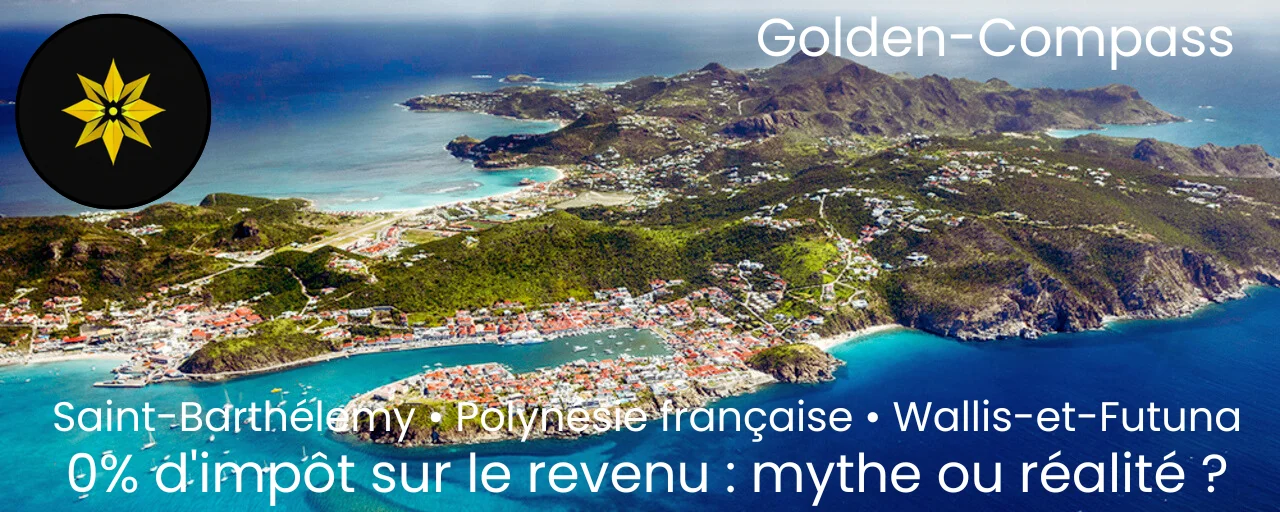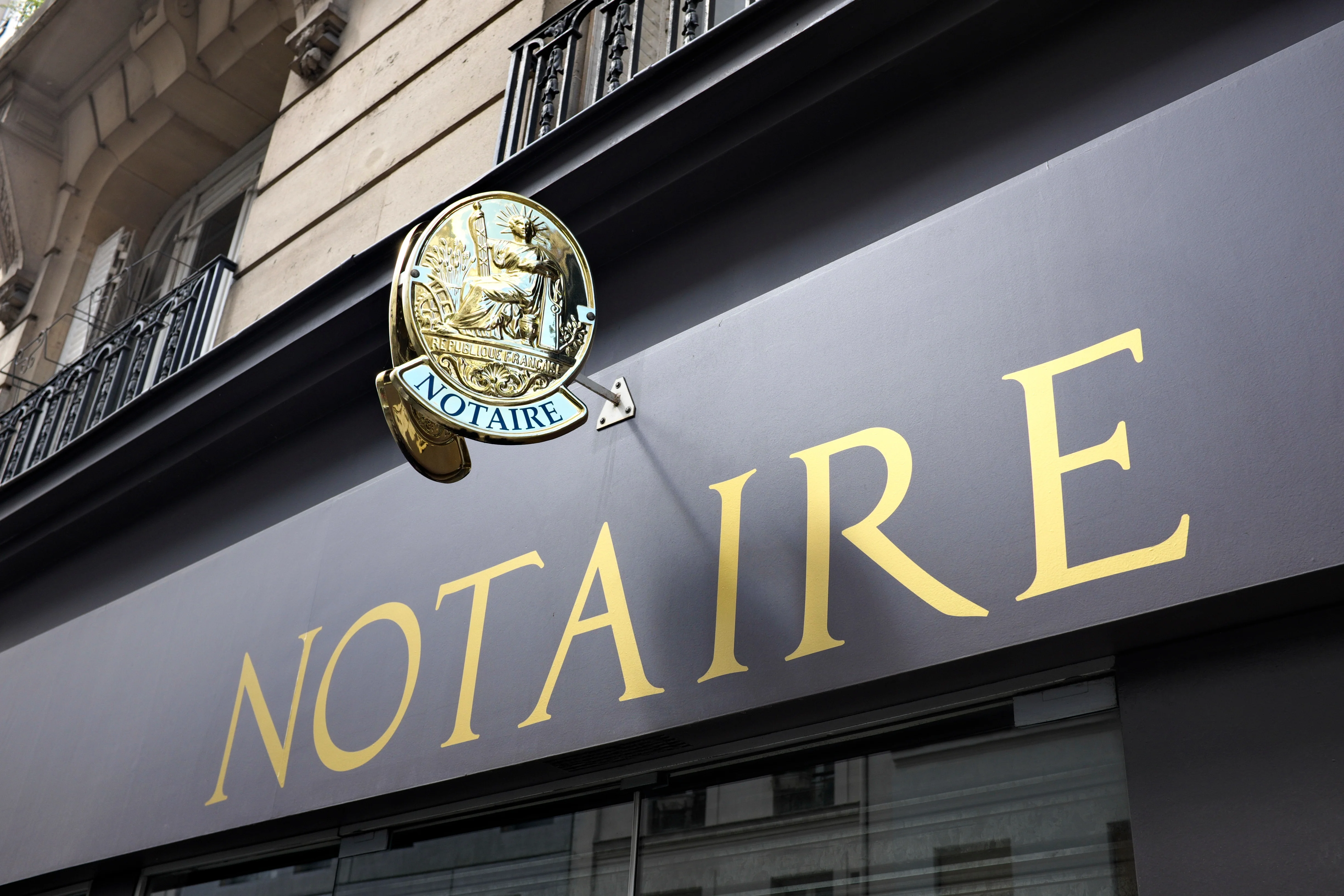French Tax Havens: Saint-Barthélemy, Tahiti, Wallis-et-Futuna - Complete Guide 2025
Discover if Saint-Barthélemy, French Polynesia or Wallis-et-Futuna can really optimize your taxes

With the debate on the 'Zucman tax' (proposal for a 2% minimum tax on ultra-rich wealth by economist Gabriel Zucman) and minimum tax on the ultra-rich, many are looking for legal tax optimization alternatives. Did you know that France has its own 'tax havens' in its overseas territories? Saint-Barthélemy, French Polynesia and Wallis-et-Futuna offer special tax regimes that can appeal to digital nomads and tax expatriates.
But do these territories really represent an interesting financial opportunity? Between advantageous taxation, high cost of living and administrative constraints, we will analyze in this comprehensive guide whether tax exile to these 'tricolored havens' is really worth it.
⚖️ Legal Warning
⚖️ Important Legal Distinction
🏛️ The Special Legal Status of French Overseas Territories
Unlike overseas departments (DOM) which apply metropolitan law, certain overseas collectivities (COM) benefit from significant fiscal autonomy thanks to Article 74 of the French Constitution.
Saint-Barthélemy
Overseas collectivity since 2007. Complete fiscal autonomy and Overseas Countries and Territories (OCT) status vis-à-vis the EU.
French Polynesia
Overseas collectivity with broad autonomy. Has its own fiscal and customs institutions since 1984.
Wallis-et-Futuna
Sui generis collectivity. Almost non-existent taxation with a traditional chieftaincy system maintained.
💰 Detailed Tax Comparison of the Three Territories
Tax Regime Comparison Table
| Territory | Income Tax | VAT/Indirect Taxes | Residence Conditions | Cost of Living |
|---|---|---|---|---|
| Saint-Barthélemy | 0% after 5 years residence | Moderate local VAT | 183d/year + 5 consecutive years | Very high |
| French Polynesia | 0% immediate | VAT-PF 16% + customs | 183d/year | High |
| Wallis-et-Futuna | 0% immediate | Limited import taxes | 183d/year | High (limited supply) |
| Metropolitan France (comparison) | 11% to 45% | VAT 20% | Habitual residence | Variable |
🔍 Detailed Analysis by Territory
🏝️ Saint-Barthélemy
✅ Tax Advantages
- • 0% income tax after 5 years
- • No local corporate tax
- • Moderate local VAT (8-15%)
- • Reduced inheritance rights
❌ Disadvantages
- • 5-year mandatory period
- • Very high cost of living
- • Luxury real estate market
- • Strict tax controls
🌺 French Polynesia
✅ Tax Advantages
- • 0% immediate income tax
- • No corporate tax
- • Capital gains exemption
- • Exceptional living environment
❌ Disadvantages
- • High local VAT (16%)
- • High customs duties
- • UTC-10 time zone
- • Geographical remoteness
🌴 Wallis-et-Futuna
✅ Tax Advantages
- • 0% immediate income tax
- • No corporate tax
- • No VAT
- • Almost non-existent taxation
❌ Major Disadvantages
- • Weak digital infrastructure
- • Very rare and expensive flights
- • Limited medical services
- • Restricted commercial offer
📋 Declaration Obligations: What You Need to Know
Even with tax residence in these territories, you remain subject to many declaration obligations. Legal tax optimization does not mean absence of controls.
Local Obligations
Declaration of all your worldwide income to the local tax administration. Opening local bank accounts mandatory in certain territories.
French Obligations
Declaration of exit from French tax territory. Possible maintenance of certain obligations depending on income source.
🚨 FATCA and CRS Obligations
📊 Tax Evasion in France (Gabriel Zucman data)
Lost to banking secrecy
Corporate tax evasion
Total evasion (2013 report)
Source: Gabriel Zucman, 'The Hidden Wealth of Nations' + Tax Justice Network
🌍 Comparison with Other Tax Expatriation Options
To put French territories in international context, here's a comparison with other destinations favored by tax expatriates.
International Comparison of Tax Destinations
| Destination | Status | Taxation | EU/EEA | Accessibility | Cost of Living |
|---|---|---|---|---|---|
| Monaco | Sovereign state | 0% IR residents | Non-EU | Very difficult | Very high |
| Andorra | Sovereign state | 10% IR max | Non-EU | Accessible | Moderate |
| Portugal (D7) | EU | 20% for 10 years | EU | Very accessible | Moderate |
| Dubai (UAE) | Emirate | 0% IR | Non-EU | Accessible | High |
| Saint-Barthélemy | French COM | 0% after 5 years | OCT | Expensive | Very high |
| French Polynesia | French COM | 0% immediate | OCT | Accessible | High |
💡 Specific Advantages of French Territories
- • Maintain French nationality
- • Legal security of French law
- • Access to French consular services
- • No language barrier
- • French healthcare system (depending on territory)
🧮 Simulator: How Much Could You Save?
Tax Optimization Simulator
Income Tax
49,200 €
Net Income
70,800 €
Savings vs Metropolitan France
0 €
💡 Note on Calculations
💻 Attractiveness for Digital Nomads
Tax advantage is not everything. For a digital nomad, internet connection quality, access to services and cost of living are determining factors.
Digital Nomad Infrastructure Comparison
| Territory | Internet Connection | Coworking spaces | Time zone | Accessibility |
|---|---|---|---|---|
| Saint-Barthélemy | Fiber 300 Mb/s | Limited (luxury clientele) | UTC-4 | Flights via Saint-Martin |
| French Polynesia | Fiber 100 Mb/s | Few options in Tahiti | UTC-10 | Direct flights from Paris |
| Wallis-et-Futuna | 1-4 Mb/s | Non-existent | UTC+12 | Rare flights, transit New Caledonia |
Saint-Barthélemy
Excellent for luxury nomads with high income. Top infrastructure but prohibitive cost.
French Polynesia
Good compromise between quality of life and infrastructure. Watch out for time zone with European clients.
Wallis-et-Futuna
Not recommended for online work. Insufficient infrastructure for professional activity.
⚖️ Legal Optimization vs Tax Fraud: The Red Line
It is crucial to understand the difference between legal tax optimization and tax fraud. The French administration closely monitors these expatriations and penalties can be severe.
✅Legal Optimization
- •Real change of tax residence and center of vital interests
- •Strict compliance with presence thresholds (< 183d in France)
- •Complete and transparent declaration to both administrations
- •Real economic activity in the host territory
- •Support by professional tax advisor
❌Tax Fraud
- •Fictitious or purely accommodating residence
- •Non-declaration of French or foreign income
- •Artificial arrangements without economic substance
- •Concealment of assets or bank accounts
- •Circumvention of declaration obligations
🚨 Tax Controls and Exit Tax
📋 Legal Security Checklist
- • DGFiP tax ruling
- • Specialized legal advice
- • Personalized study
- • Rigorous presence monitoring
- • Complete documentation
- • Regulatory watch
📊 Case Study: IT Freelancer at €120k/year
Profile: Independent Web Developer
Current Situation (Metropolitan France)
- • Income: €120,000/year
- • IT + levies: ~€36,000
- • Social security: ~€24,000
- • Net available: ~€60,000
French Polynesia Scenario
- • Income: €120,000/year
- • IT: €0
- • Local social security: ~€6,000
- • Net available: ~€114,000
📈 Theoretical Gain: +€54,000/year (+90%)
⚠️ But beware of hidden costs: housing (+€2000/month), food (+40%), flights (+€3000/year), international health insurance (+€2000/year)
📋 Installation Procedures and Pitfalls to Avoid
✅ Installation Steps
- 1Long-stay visa application (> 90 days)
- 2Income proof and professional project
- 3Housing search and rental
- 4Local bank account opening
- 5Tax declaration of residence change
⚠️ Traps and Risks
- •Double taxation if residence poorly established
- •French tax abuse of law control
- •Withholding tax on French income
- •French social security charges maintained
- •Metropolitan banks closing accounts
🚨 Important: Prior Tax Ruling
🎯 Verdict: For Whom Are These Territories Really Interesting?
✅ Ideal Profiles
- • Income > €150k/year
- • 100% online business
- • International clients
- • Assumed nomadic lifestyle
- • Already established capital
⚠️ To Study Case by Case
- • Income €80-150k/year
- • Mixed online/offline activity
- • Family with children
- • Specific medical needs
- • Attachment to France
❌ Not Recommended
- • Income < €80k/year
- • Activity requiring physical presence
- • Classic employees
- • Adventure seeking only
- • Tight budget
🔍 Our Golden Compass Recommendation
Tax optimization via French overseas territories can be relevant, but should never be the only motivation. The real tax gain depends heavily on the cost of living and personal constraints. For most freelancers and entrepreneurs, tax optimization in metropolitan France (SASU status, optimized micro-enterprise, etc.) remains more pragmatic.
💡 Golden Compass supports you in your wealth management decisions. For personalized tax advice, we can connect you with AMF-certified experts.
❓ Frequently Asked Questions
Can I keep my French tax residence?
No, tax optimization requires a real change of tax residence. You must spend less than 183 days per year in France and move your center of vital interests.
What about social security contributions?
French social security contributions may be maintained according to bilateral agreements. Each territory has its own social protection system, often less comprehensive.
How much does life really cost there?
Count +50% to +200% compared to metropolitan France depending on the territory. A budget of €4000-6000/month is realistic for a comfortable lifestyle in Polynesia, €8000+ in Saint-Barth.
Are there less restrictive alternatives?
Yes: Portugal (D7 visa), Dubai, Malta, Cyprus offer advantageous tax regimes with fewer constraints. To be studied according to your situation.
Are these territories on official blacklists?
No, no French overseas territory appears on the OECD, EU, FATF or French lists of tax havens. They benefit from legal derogatory regimes within the French constitutional framework (article 74), with complete judicial cooperation and transparency.
What are the risks of tax control?
The French administration can verify the reality of your residence change over 6 years. Criteria checked: center of vital interests, number of days of presence, real economic activity. In case of abuse of rights, full adjustment + 40-80% penalties.
📝 Conclusion
French overseas territories do indeed offer attractive and legal tax optimization opportunities. Saint-Barthélemy and French Polynesia can represent a real advantage for high-income entrepreneurs and digital nomads, provided they accept the constraints of cost of living and remoteness.
However, this strategy is only suitable for a minority of specific profiles. For the majority of freelancers, tax optimization solutions in metropolitan France remain more accessible and pragmatic.
Remember: tax optimization should never be your only motivation. A coherent life project, thorough financial study and professional support are essential before taking the big leap.
💼 Need support for your tax optimization project?
Golden Compass supports you in your financial decisions with educational resources and practical tools.
🤝 For personalized advice with a certified expert, contact us! We will connect you with qualified professionals (Golden Compass acts as a business introducer).
Discover our other articles on personal finance
































Join the conversation on r/GoldenCompass
Ask questions, share your view, or read what other investors think.
⚖️ Legal Optimization vs Tax Fraud: The Red Line
It is crucial to understand the difference between legal tax optimization and tax fraud. The French administration closely monitors these expatriations and penalties can be severe.
✅Legal Optimization
- •Real change of tax residence and center of vital interests
- •Strict compliance with presence thresholds (< 183d in France)
- •Complete and transparent declaration to both administrations
- •Real economic activity in the host territory
- •Support by professional tax advisor
❌Tax Fraud
- •Fictitious or purely accommodating residence
- •Non-declaration of French or foreign income
- •Artificial arrangements without economic substance
- •Concealment of assets or bank accounts
- •Circumvention of declaration obligations
🚨 Tax Controls and Exit Tax
📋 Legal Security Checklist
- • DGFiP tax ruling
- • Specialized legal advice
- • Personalized study
- • Rigorous presence monitoring
- • Complete documentation
- • Regulatory watch